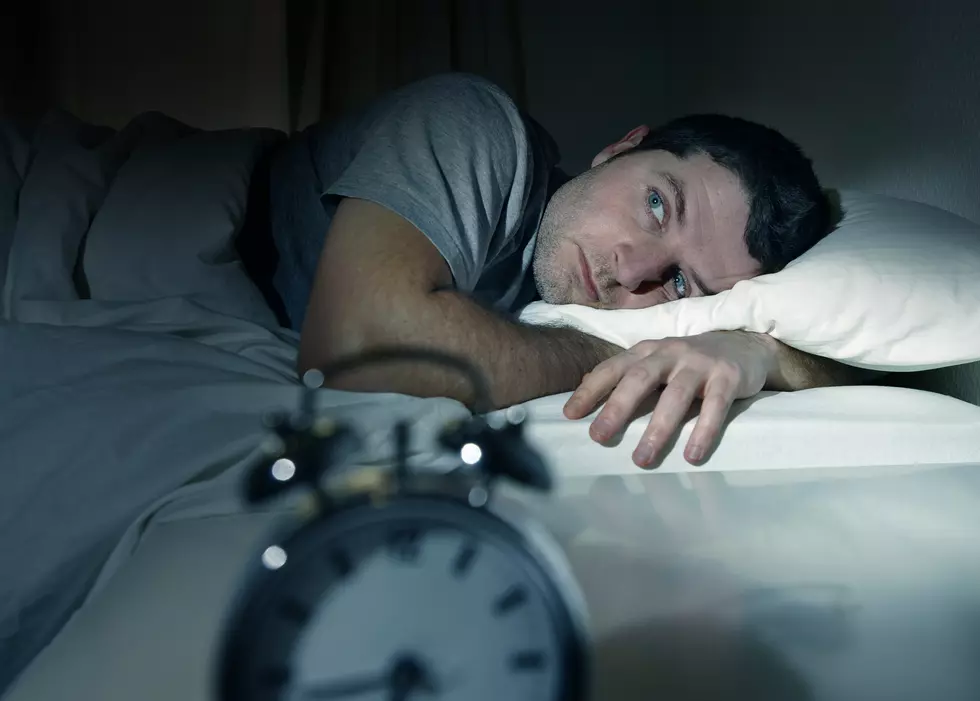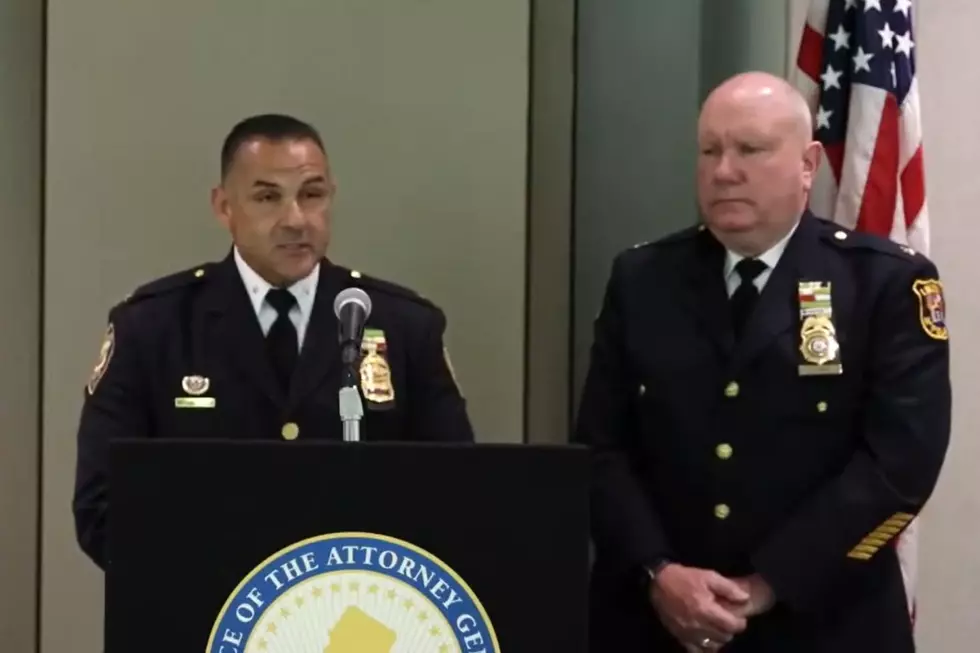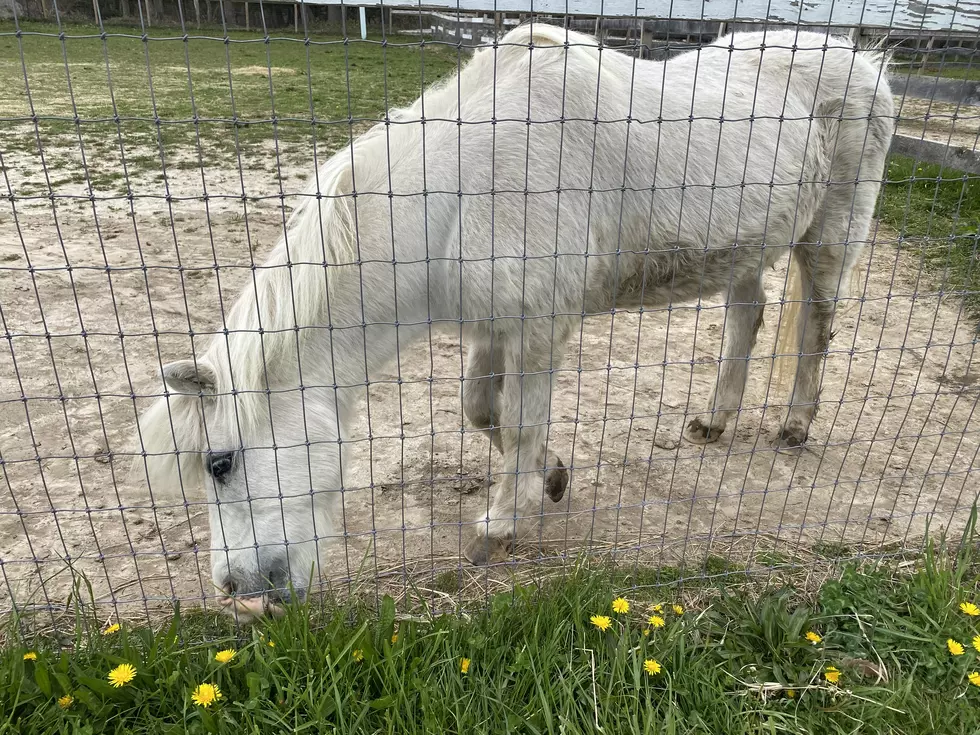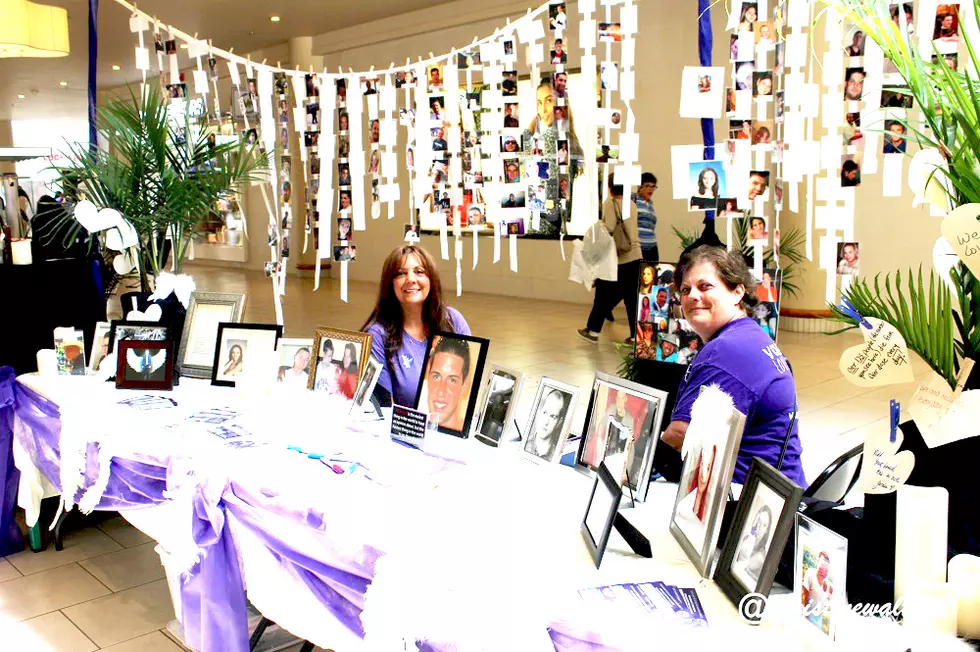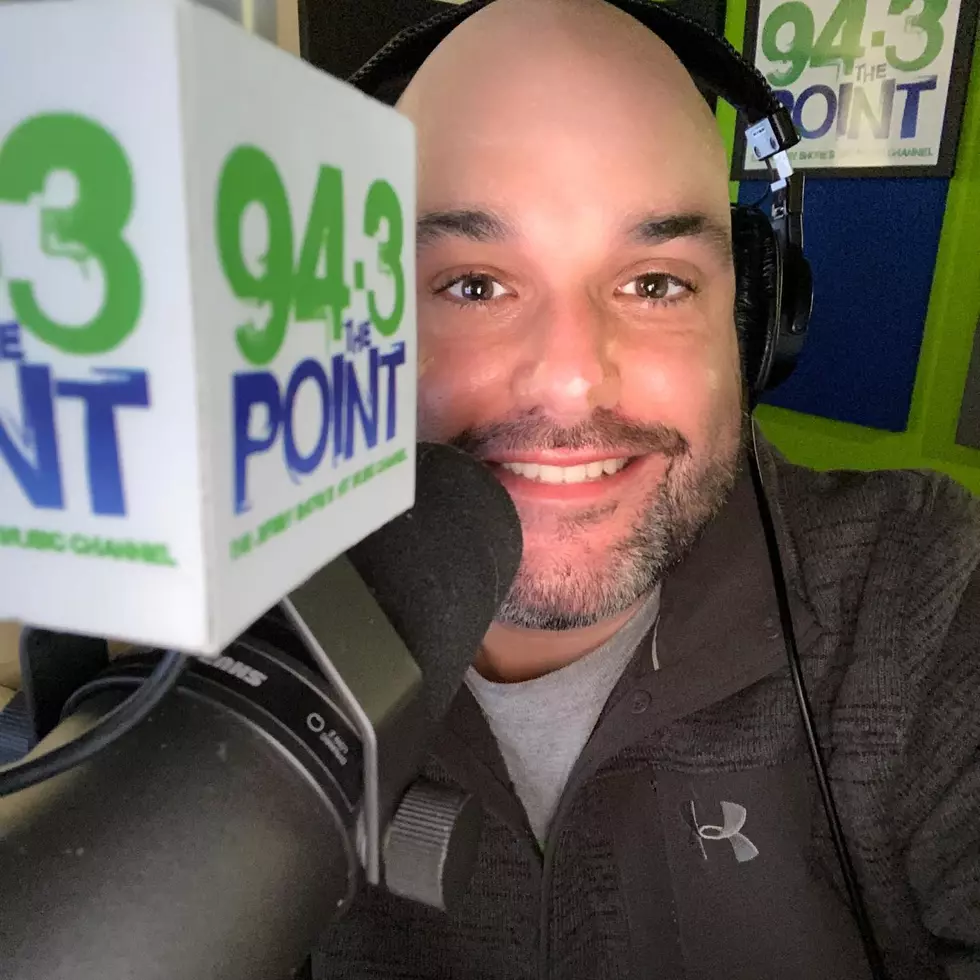
New Jersey Radio Personality Speaks Out About Inpatient Mental Health Care Experience
It's a new year. Fresh beginnings and a renewed outlook. I'm certainly looking forward to 2023, as the last half of 2022 tested me to the core.
You may have noticed that I was not on the air for nearly four months. Let me tell you why.

I have taken pride in being an open book to you over the nearly 13 years that we have shared time together on the radio, online, and at events. Whether it has to do with the good things in life or the not-so-good, we have talked about it.
I have gotten especially personal with you when it comes to the subject of mental health. This area of one’s life is very sensitive and the depth to which it’s shared is a choice that should be respected regardless of how much or how little is revealed. Often, it is the ones who share the least that are suffering the most.
The choice to openly share my journey is simple. I am incredibly lucky to have this platform and an open mic on weekdays from 3-7 p.m. on 94.3 The Point to create a dialogue. My hope is that some people struggling in silence will hear my story and have hope that their lives can get better and that there is help even when it feels like one has exhausted all options.
This past summer I thought I had exhausted all options. But, let’s start at the beginning.
Since I was a child, I have dealt with mental illness. Except at that time, nobody thought it was diagnosable. I was also too young to express exact feelings.
My Mom tells me that even when I was in kindergarten my teacher would refer to me as a “worry wart.” I would worry about things that the average five- or six-year-old would not usually worry about. For example, it would not be uncommon for me to get extremely anxious if too much time had passed when my parents said they were going to the store and would be right back.
I was, and still am, hard on myself. I set high, sometimes unreasonable expectations and beat myself up if they are not met.
Being a teenager is not easy for anyone. From awkwardly trying to figure out where one fits in, to searching inward for who one is. This picture should say it all. I'm kidding.
It was during my teenage years that it became clear to me and my loved ones that I was dealing with more than just nervousness and “growing pains.” In high school, I started to develop a very serious case of hypochondria. This is the fear of serious medical issues.
If I had a headache, I thought I could have a brain tumor and die. Every ache, pain, and bodily sensation was connected to a catastrophic outcome. Understandably, this led me into a deep depression, even an attempt to take my life.
After seeing a psychologist for the first time at 16, I was diagnosed with generalized anxiety disorder and massive depressive disorder. I was also prescribed medication.
Thanks to my family, a strong support system, therapy, and medication, my life started to improve. I was able to get my first full-time radio show during my senior year of high school. By 19, I was on the air in Philadelphia. At 21 I was working at New Jersey’s biggest radio station behind the mic and behind the scenes. This is 94.3 The Point’s sister station, New Jersey 101.5.
There were absolutely highs and lows in between. It was not perfect, it never is.
This past summer, I was at the height of my career. I had more titles; I was being heard by more listeners; I was making more money. But at the same time, I was struggling silently. My depression was getting worse, my anxiety was getting higher, and panic attacks were happening more frequently.
What is a panic attack?
For those who are unfamiliar with them, a panic attack is an intense anxiety that presents very quickly. Those who have never had a panic attack often confuse them for heart attacks because there are some similar symptoms. WebMD adds that people often think they are losing control or even dying when one of them is happening. Many people experience shaking, sweating, increased heart rate, shortness of breath, nausea, chills, lightheadedness, and tightness in the chest.
Simply put, panic attacks suck.
I was beginning to have panic attacks at work. I would come into the radio station, get through some of the days, and boom, it would hit me. Sometimes I was able to make it through the day, other times I had to go home.
For most of the early summer, my mind was knocking me down, but I was getting back up again. Simultaneously, my depression was hitting an all-time low and reaching a dangerous point and my anxiety was nearly uncontrollable. I was so lost that I thought there was only one option left.
July 25th, 2022. This would be my last day on air. At the time, I thought it was going to be forever.
At this point, my mental health had deteriorated greatly. I thought that I was burned out and planned on taking a two-week leave.
Well, anyone who knows me knows how much radio is a part of my life. I just was not able to relax, recharge and collect myself. Instead, the extra free time led me to worry even more.
“I had a radio studio in my room, and my first real radio job at 14.” I reasoned. “This is all I know. What if I can never go back on the air again?” “I have devoted nearly 13 years of my life to 94.3 The Point. What if I am never able to return?” I would even try to float in the pool on a beautiful summer day listening to a Yankee game on the radio and think “Will I ever be able to go and see a live baseball game again?” My life was plagued with unending worry. That led to crippling depression.
August 1st was my birthday. Everyone around me was trying to cheer me up, but I was inconsolable. It was clear to them and becoming clear to me that something was wrong.
On August 4th I had a virtual visit with my psychiatrist. He reviewed my symptoms and all the tweaks and changes that had been made to my medicines. He assured me that though I felt that there were no other options left, we had just touched the surface. My doctor advised that my care be taken to “a higher level.” What did that mean?
My doctor began to explain to me what in-patient psychiatric care was.
What is in-patient psychiatric care?
Alvarado Parkway Institute describes inpatient psychiatric care as the most intensive level of treatment for individuals suffering from mental health and addictive disorders. It offers 24-hour care in a safe and secure facility, making it best for patients with severe mental health or substance abuse issues who require constant monitoring. The inpatient environment is highly structured and emphasizes understanding the signs of psychiatric illness, rapid stabilization, developing strategies to avoid re-hospitalization, and discharge planning.
I was admitted to Brick Hospital and transported to a facility near Philadelphia. I arrived in the early morning hours of August 6th. Like many who have never been to a place like this, I was expecting what we have seen in movies. Prisoner cells, padded rooms, and dangerous patients roaming the halls.
That could not be further from reality.
At this facility, there was a college dorm feel. The intake team took my vitals and checked my belongings. I had only brought essentials like clothing and hygiene items. Two things were taken from me. The first was my shaving razor. Patients are allowed to use them but under the supervision of a staff member. The second was my phone. I had to write all my important numbers down, power down the iPhone, and hand it over. While I know going without that device sounds scary, it was actually the best thing ever, trust me. It was like a digital cleanse.
I sat down with a social worker for about an hour and went over my health history. By that time, it was about four in the morning and I was exhausted. I was shown to my room. It was not a prison; it was not padded; but it also wasn’t the Ritz. There was a window with a nice view, my own bathroom, and shelves for my clothes. Surprisingly, I would find out that I wouldn't spend much time there.
The start of my day was at 7 a.m. I am not a morning person, and after barely getting three hours of sleep, I was tired. I got up, took a shower, and got dressed. I walked out to the common area where breakfast was being served.
Now, when one thinks of this kind of place, gourmet food may not immediately come to mind. It certainly had not even crossed mine. When I got my tray I was surprised with the choices: an offering of red velvet pancakes, apple cinnamon French toast, bacon, eggs, cereal, fresh fruit, and juice.
On this first day, I picked up some cereal and that was it. Quite frankly, I was scared to death. I voluntarily put myself in a place that would control my life. Even if I wanted to leave right there and then, I couldn’t.
I remember calling my family on one of the two public phones. I was just saying in a panic “I don’t belong here. I don’t belong here.” They kept telling me to give it a chance and that I had only been there for less than four hours.
There are two nurse stations that are staffed 24 hours a day. I will never forget going over to one of the nurses and asking her if I could talk to someone. Because it was a Saturday, there was a limited staff and the weekend doctor was on call.
This nurse informed the other nurse that she was taking her lunch and invited me to come with her. We went into a patient room and talked. She told me she had seen the look on my face many times and that it was a completely normal reaction to these new and unfamiliar circumstances. She assured me to “just let go, ”be cared for,” and “follow the program.”
I made sure to tell that nurse before I left that if it were not for the kindness of her own time, I wouldn’t have made it. Nurses are special people.
One of the many benefits of inpatient care is that you get a lot of time with an accredited psychiatrist nearly every day of your stay. Psychiatric medicines are very touchy and one size does not fit all. That is why the ability to see your doc frequently is paramount as adjustments can be made very quickly.
My day at this treatment center was very structured and it’s that way for a reason. Up every morning at 7 a.m., lights out at 11 p.m. I was not left with a lot of free time in between. The day consists of many a lot of group therapy sessions.
Up until this experience, I had never been a part of group therapy. It is a little daunting at first. I was in a room with 10 strangers sharing the most vulnerable and intimate parts of our lives.
Let me tell you, the power of group therapy is so powerful.
We all have different life experiences, and with all those experiences come knowledge and life lessons.
When someone in group therapy asked for feedback or perspective, there was never hesitation from the group to give constructive thoughts. It renewed my faith in the kindness of others
It is worth noting that in this facility, like most, there are people healing from mental health issues, addiction, or both (which is referred to as dual diagnosis). The two frequently go hand in hand.
So, what did I do in my free time? There wasn’t the Internet or a TV in my room. There were still COVID restrictions in place, so no visitors were allowed. I also had to always wear a mask unless I was in my room.
The only thing left was to get to know a lot of amazing people from all walks of life. These people varied in age. Their lives were also very different from mine. I’m so lucky to have had these conversations. They made me realize that as different as one may think they are from others, we are still very much the same in many ways. I still keep in touch with many of the people that I met during my stay.
I also have to praise the staff, social workers, nurses, and doctors at this facility. I have never seen a group of people that truly care about their patients to this extent. That environment can be volatile making the jobs of these individuals very difficult. They still gave 100 percent compassion and most importantly, showed no judgment.
When the day came to get discharged, I was very nervous. Some may find this puzzling as many would expect I would be excited to be getting back to my surroundings, into my own, much more comfortable bed, and able to do things on my time. This was certainly true but not the entire set of circumstances. Think about this:
I spent a good chunk of time in a protective bubble. There was no outside interference. No phone, no work emails, no texts. Meals were prepared for me, medicine was dispensed for me, and there wasn’t a lot of interaction with the “real world” to worry about. It was the closest thing to putting my life on pause, so I could solely focus on getting better.
Once leaving inpatient care, it was on to outpatient psychiatric care.
What is outpatient psychiatric care?
Outpatient mental health treatment takes place in an office, hospital, or clinical setting, but involves no overnight stay. Unlike residential or inpatient treatment, patients who receive treatment in an outpatient setting return home each night.
Like other treatment programs, outpatient mental health treatment can be tailored to each individual’s needs. The nature and severity of the person’s mental health condition will determine how much and what kind of care they need. Treatment may involve:
- Individual or group counseling
- Psychotherapy
- Psychiatric medication
- Dialectical behavior therapy
- Chemical dependency treatment
- Bipolar disorder treatment
- Anxiety treatment
- Depression treatment
- Transcranial magnetic stimulation (TMS)
- Stress management skills
- Family therapy
At "outpatient," I studied DBT or dialectical behavioral therapy
Dialectical behavior therapy (DBT) is a modified type of cognitive behavioral therapy (CBT). Its main goals are to teach people how to live in the moment, develop healthy ways to cope with stress, regulate their emotions, and improve their relationships with others.
In addition, there were individual and group therapy sessions, and meetings for medication management.
To start, I was doing outpatient care Monday through Friday from 10 a.m. to 3 p.m. Eventually, that was reduced to Monday through Friday from 10 a.m. to 1 p.m. and a few weeks before discharge my scheduled time was shortened to three days a week from 10 a.m. to 1 p.m.
Eight weeks later, I was back to life on my own.
In many ways, I was starting my life over at 39.
I honestly did not think that I would be able to return to radio. I even downloaded Indeed and started to look at options outside of radio.
It has really been up to me to regain confidence in myself. A lot of it has been lost. Not only when it comes to my career, but in the little things that we all take for granted. For example, really pushing on those days when you can’t get out of bed to get outside, breathe, and just look around.
Here's what I've learned.
Never assume how someone feels based on their outside persona. We all have different ways of coping with stress, loss, and sadness.
When in doubt, be kind. Kindness can never hurt. Whether you are giving or receiving, it makes everyone feel better.
The most important thing that I took away from this experience is that there is no one part of a person that defines them. We are all collective emotions and experiences, and that’s ok. That is what makes us all beautiful and unique.
In closing, please remember that if you or someone you know is struggling and really thinks they can’t be helped, do not give up hope. Please. I nearly took my life, that’s about as low as it gets.
But take heart, if I can rebound, you can too. I want you here. Truly. Please keep the topic of mental health open. The more we talk about it, the more mainstream it will become. The stigma associated with mental illness will only dissipate if we collectively spread the word. And it is absolutely a message worth spreading.
Remember, if you or someone close to you is ever having a mental health emergency, dial 988 immediately.
Am I healed? No. I’ll be working on my mental health for the rest of my life. I will continue to have my ups and downs. But this is ok. In fact, it is more than ok. After all, we are all works in progress up until the very end.
KEEP READING: See 25 natural ways to boost your immune system
More From 94.3 The Point

